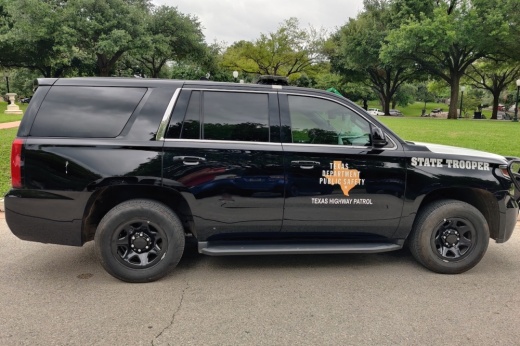By the numbers
Of 167 people arrested on misdemeanor charges through the DPS operation between March 30 and April 22, 87% were Black or Latino, according to figures provided by County Attorney Delia Garza's office April 27. That includes a total of 108 Latino people and 38 Black people—65% and 23% of the arrests, respectively. Austin is around 32% Hispanic or Latino and 7% Black, according to 2020 Census figures.
Twenty white people, 12% of the DPS total, were arrested through April 22. Austin is 47% white.
The county attorney's office also reported the arrest of one Asian or Pacific Islander, a demographic group making up about 9% of the city's population.
Garza said in a statement that the arrest results compiled by her office are "extremely concerning."
"We have worked hard to build trust in communities of color, and we risk eroding that trust if the operation between the city of Austin and DPS continues in its current iteration," Garza said. "We all agree that we need to prioritize violent crime and true threats to public safety, and I am hopeful the city and DPS can find a way to accomplish this without disproportionally impacting communities of color.”The preliminary arrest details cover just over three weeks of the early days of the DPS partnership, and the county attorney's office was not able to provide similar data for the period before the law enforcement initiative began. A public records request to the DPS for arrest reports from the first weeks of the Austin operation was not fulfilled as of press time.
The APD previously reported that DPS troopers had pulled over more than 4,000 people in Austin and ticketed about 1,000 of them as of April 13, although demographic details on those traffic stops were not released. A drop in violent crime and 911 calls as well as improved police response times were recorded since DPS troopers began patrolling Austin, the APD said then. The police department did not provide more recent figures on DPS activity as of press time April 28.
On April 27, Gov. Greg Abbott reported that DPS special agents in Austin made two felony arrests alongside the seizure of hundreds of thousands of doses of fentanyl, 18 firearms, ammunition and other tactical equipment.
The outlook
Mayor Kirk Watson, who launched the APD-DPS partnership this spring in collaboration with Lt. Gov. Dan Patrick and Abbott, said the new arrest information is both "troubling" and incomplete. He also said additional information on the program is needed, starting at next week's City Council work session.
"Like I’ve said before, this partnership is a continuing collaboration that requires transparency and accountability. I’ve also said that everyone in Austin deserves to be safe and to feel safe, including and without question, if you’re a person of color being stopped by police" Watson said in a statement. "Data is essential to ensuring that our public safety is reflecting Austin values. We are committed to making sure that the data is readily available to our community. While the county attorney’s data raises important questions, it doesn’t tell the whole story. APD and DPS need to do that."
Several council members have also said the April 27 data release backed up their own worries about the DPS operation and does not match up with the local community's public safety goals.
"DPS policing in Austin must align with our values of racial justice and equitable policing. These numbers clearly do not align with our values," District 4 Council Member Chito Vela said.
District 9 Council Member Zo Qadri stated his disappointment in DPS not yet sharing any demographic information on its own, and said that city officials should push back on the operation.
"Every Austinite deserves to live in peace, safety and comfort in their city. Period. The continuation of the APD/DPS partnership has shaken the sense of safety and belonging for many of our residents," Qadri said on Twitter. "As a council, we must act now with a sense of urgency."
District 2 Council Member Vanessa Fuentes also said council should push for further transparency from DPS.
"We all want the same thing - public safety that works for ALL Austinites. Unfortunately, the numbers only confirm what we already suspected: the DPS operation is disproportionately harming communities of color," she said.
Council has already held one briefing about the operation on April 18 during which several officials raised questions about the disparate DPS presence between East and West Austin, how state troopers are assigned across the city, and what the operation's eventual termination might look like. APD representatives told council then that DPS troopers are sent to Austin neighborhoods based only on 911 call data, and city leaders did not detail a process for ending the program.
A follow-up discussion was initially scheduled for later in May but was moved up to the May 2 work session at the request of District 3 Council Member José Velásquez.
"[M]y community feels targeted and deserves answers sooner rather than later," he said on council's message board.
Council's May 2 work session including another briefing on the DPS program will begin at 9 a.m. at City Hall.





